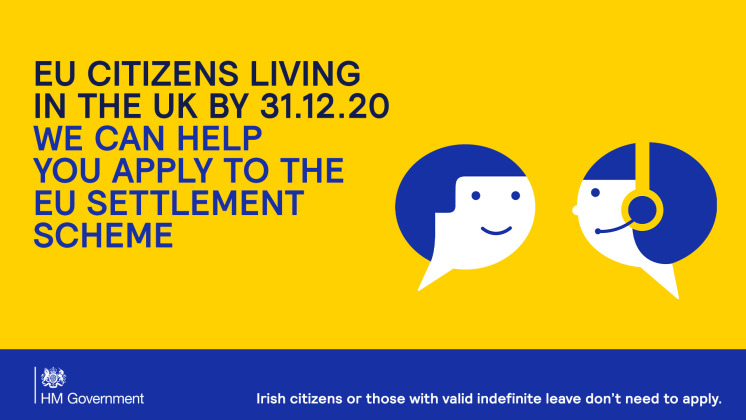
EU, EEA and Swiss nationals
‘EU nationals’ refer to the EU less the UK. This comprises Austria, Belgium, Bulgaria, Croatia, Republic of Cyprus, Czech Republic, Denmark, Estonia, Finland, France, Germany, Greece, Hungary, Ireland, Italy, Latvia, Lithuania, Luxembourg, Malta, Netherlands, Poland, Portugal, Romania, Slovakia, Slovenia, Spain, Sweden.
The EEA comprises Iceland, Liechtenstein and Norway. Switzerland is not part of the EEA but is a member of the single market – this means Swiss nationals have the same rights to live and work in the UK as other EEA nationals.
Citizens from the Republic of Ireland will need to continue to prove their right to work in the UK as they do now.
Welsh Government support for EU citizens
The Welsh Government is funding support for EU citizens who are applying for the Settlement Scheme and need legal advice. Information on free and impartial advice providers in Wales can be found on the EUSS (EU Settlement Scheme) website
www.eusswales.com/en/index.html.
The Welsh Government will continue to support employers and will be hosting events focussed on the EU Settlement Scheme, information on registering interest for these events will be available on
https://gov.wales/preparing-wales-brexit/business-and-economy and https://businesswales.gov.wales/brexit/.
UK Government support for EU citizens
For employers, the Home Office has developed a supporting toolkit
https://www.gov.uk/government/publications/eu-settlement-scheme-employer-toolkit.
EU citizens that arrive in the UK before 1 January 2020
Currently, all EU, EEA or Swiss nationals lawfully resident in Wales (and their qualifying family members) have the same rights to live and work and access services as UK nationals. Citizens from the Republic of Ireland, which is within the Common Travel Area, also continue to have the same rights as UK citizens.
Service entitlements for qualifying EU, EEA or Swiss nationals will therefore remain broadly the same as they are now and it will not be necessary for employers, landlords or other service providers to distinguish between different groups of EU Citizens.
Where you are required to carry out a statutory check1 it will be sufficient for EU citizens to demonstrate their entitlement to services by producing a:
- passport or national identity card2 if they’re an EU, EEA or Swiss citizen
- biometric residence card if they’re a qualifying non-EU, EEA or Swiss citizen family member of an EU, EEA or Swiss citizen
- proof of their status under the EU Settlement Scheme or European Temporary Leave to Remain Scheme using the Home Office’s online right to work checking service
Employers and other service providers continue to have a duty not to discriminate against EU, EEA or Swiss citizens.
EU citizens that arrive after exit day but before 1 January 2021
EU citizens who arrive after exit day but before 1 January 2021 and wish to remain in the UK beyond 31 December 2020 will need to apply for European Temporary Leave to Remain.
EU citizens that arrive from 1 January 2021
From 1 January 2021, EU citizens who wish to come to the UK to live, work or study will need to meet the new requirements under the UK’s new immigration system. Details of this system are being developed by the UK Government. Those from the Republic of Ireland, as part of the Common Travel Area, will to have the same rights as UK citizens.
Advice on applying for the EU Settlement Scheme
EU nationals lawfully resident in the UK before exit day and their qualifying family members will be entitled to remain in the UK indefinitely, provided they have applied for the EU Settlement Scheme. The current deadline for applying to the EU Settlement Scheme is 31 December 2020 in the event of no deal, or 30 June 2021 in the event of a deal.